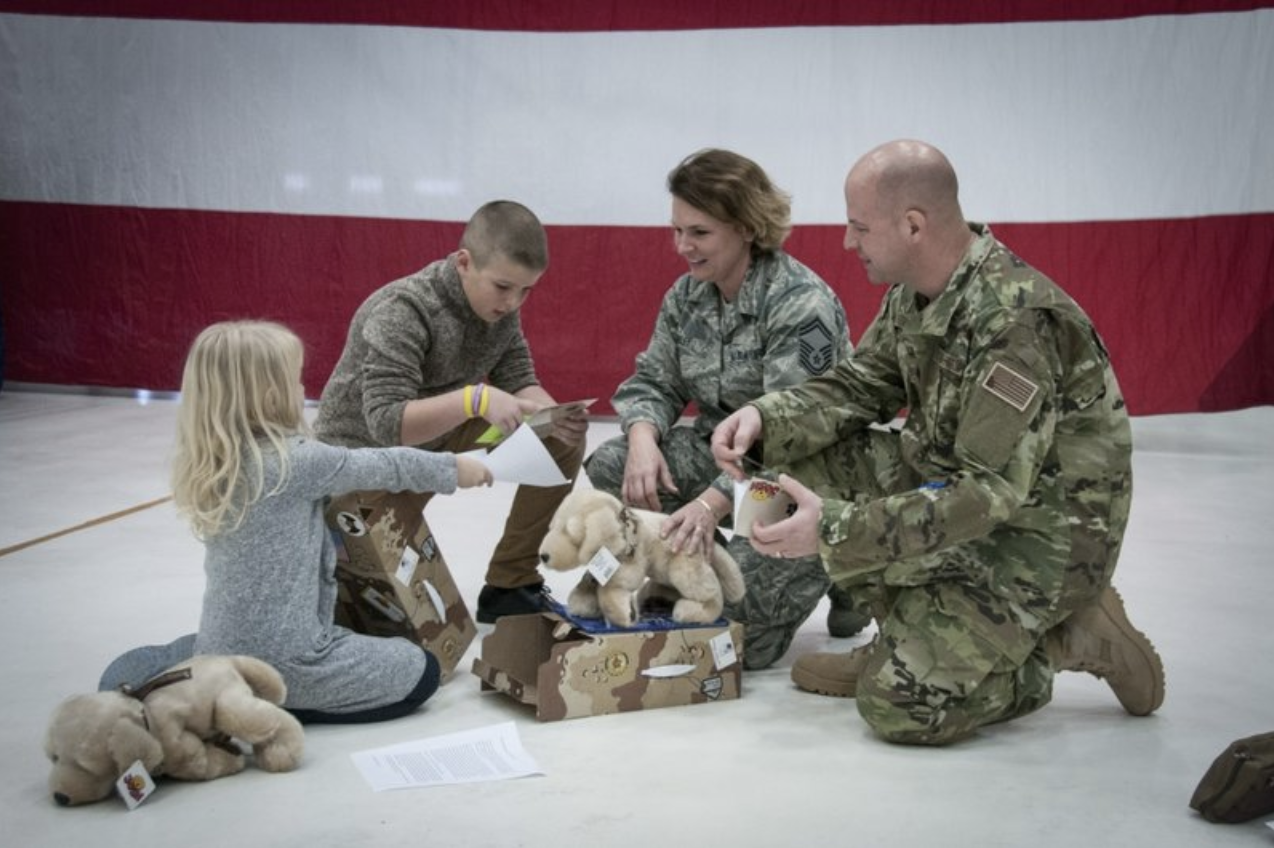For many, the holiday season is synonymous with laughter, cheer and good tidings, large celebrations and social obligations with family and friends. But for some service members, veterans and their family members, extra anxiety prompted by the holidays’ social activities can escalate stress and sink them into depression and thoughts of suicide as they cope with the effects of a debilitating physical injury or post-traumatic stress (PTS).
Only recently has the focus shifted to the experiences and challenges of military dependents, who make their own, unique sacrifices when a parent or parents serve. For Isabella Taft, holidays while her father, Ward, was on active duty sometimes meant navigating his reintegration into the family dynamic when he returned home from long deployments. Her mother, Amy, acknowledged that process was “one of the toughest aspects of military life.”
“You do eventually get over the initial shock of your loved one leaving, and learn to make your own individual patterns and habits,” Amy said. “Around this time of year, you just keep rolling because you’re not going to let an entire holiday be ruined because they aren’t there. But you question, do you involve them in the holiday plans, just in case, or not? Will they be there or not? How do you create normalcy and routine with that revolving door?”
Holidays became even more challenging after Ward received multiple blast injuries, including a moderate brain injury. With a severely damaged frontal lobe, the U.S. Navy corpsman, who spent the majority of his career serving with Marine units, experienced severe mood swings, suffered short-term memory loss that made it impossible for him to drive, and lost fine motor skills that left him unable to tie his own shoes.
Pre-injury, the Taft family might travel up to 10 hours by car to visit with friends and family, often in large gatherings and unfamiliar settings. Post-injury, family and friends had to come to terms with their decision to no longer travel because travel sparked Ward’s migraines and overstimulated brain activity while the stress of the unfamiliar settings could exacerbate his PTS.
With time, Isabella and Amy found several ways to navigate the stress of the holidays while prioritizing Ward’s recovery and specific needs. Setting boundaries was an important step in creating holiday plans that fit the Tafts’ needs. The process required them to pinpoint specific difficulties tied to family gatherings and identify the steps to overcome them.
Gently explaining to family and friends what was required of them was imperative. If they wanted to see the Tafts for Christmas, they’d need to make the commitment to come to the Taft home. Ward would be involved as much as possible in holiday activities but there inevitably would be times when he would need to separate from the group.
“That meant the family would need to accept that this didn’t mean that something was wrong. It didn’t mean that everyone else needed to stop what they were doing,” Amy said. “They just needed to respect that Ward needed space.”
These conversations created structured holidays that, though different, created a level of control that was beneficial to the entire family, but especially for Ward. For Isabella, opening up to friends was another step.
“Growing up I never wanted to have friends over, I didn’t want holidays or birthday parties, sleepovers or movie nights because I didn’t know how my dad would react. The last thing I wanted was for my dad to walk out and scream at me. You don’t want to be seen as different from your peers,” Isabella said.
Over the years, she has recognized how powerful it was to share with friends about her father’s brain injury and how it has affected her family. She has been touched by their understanding and offers of support. According to Isabella, a result of that honesty was a “house filled with laughter again after 10 years,” a feeling which she described as “awesome.”
Maintaining balance and creating new traditions also proved invaluable.
While growing up, Isabella recognized that her younger sister, Clara, needed to continue to experience traditions of old while simultaneously making new traditions. In order to keep the old traditions, Isabella ensured that things normally done with the whole family were now shared between the two sisters, as Amy’s attention was understandably turned toward taking care of Ward during his recovery from injuries that also included broken bones and nerve damage. Isabella and Clara also took responsibility for picking up Christmas presents for Amy, as Ward’s memory loss made it likely that he might forget.
Traditions that otherwise could have fallen by the wayside during a time of great stress instead gave way to new, special traditions or a blend of new and old. Such adaptability kept the spirit of the holiday alive for the sisters while allowing them to adjust to their family’s specific circumstances. What could have been a reason to abandon tradition altogether became a reason to create new ones while cherishing the old.

